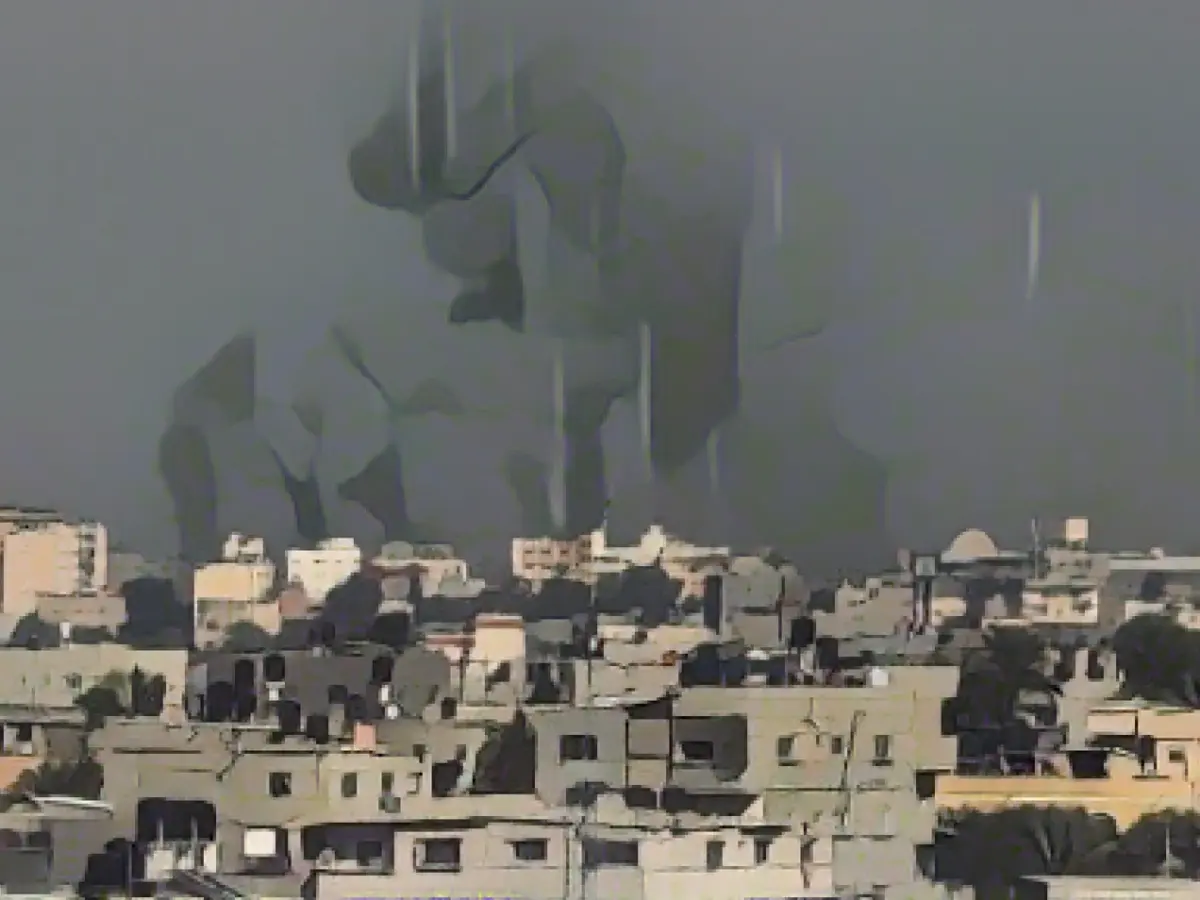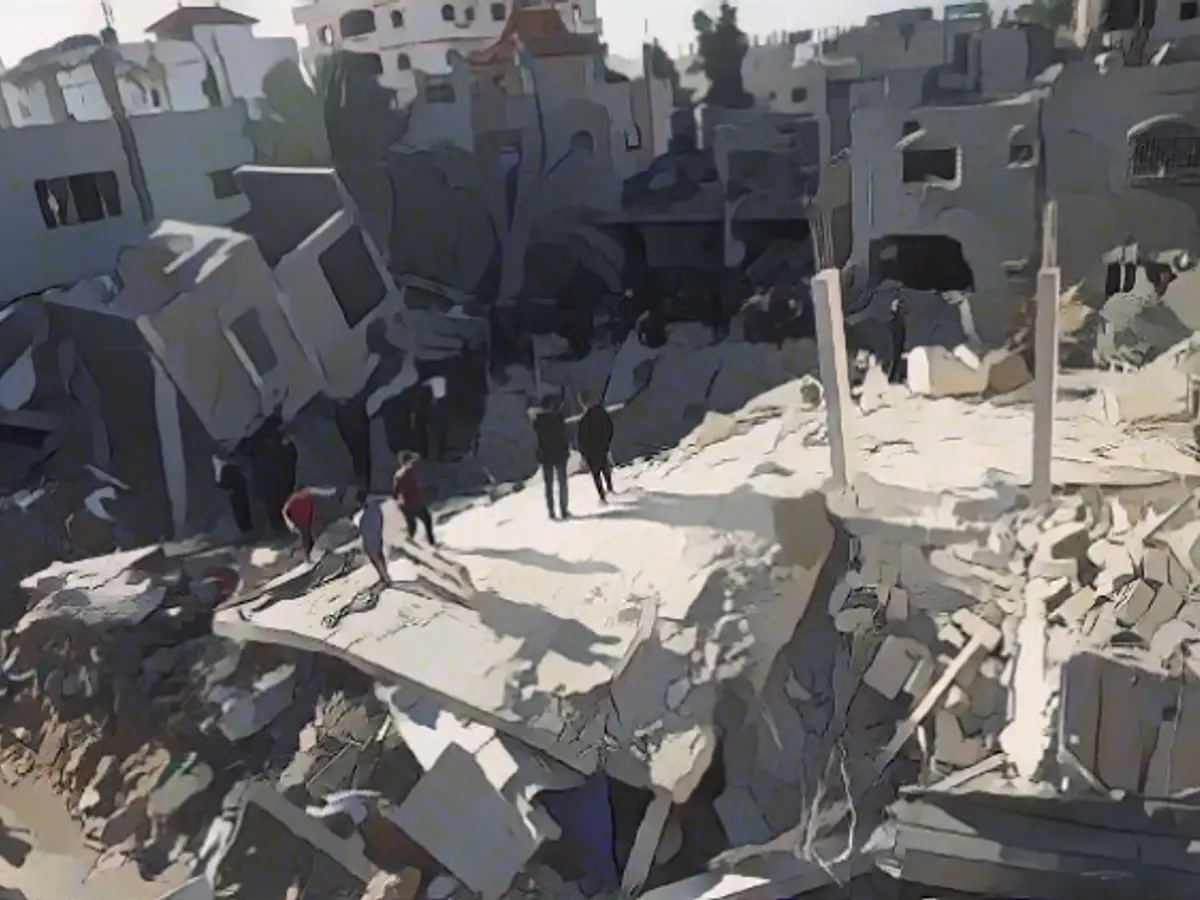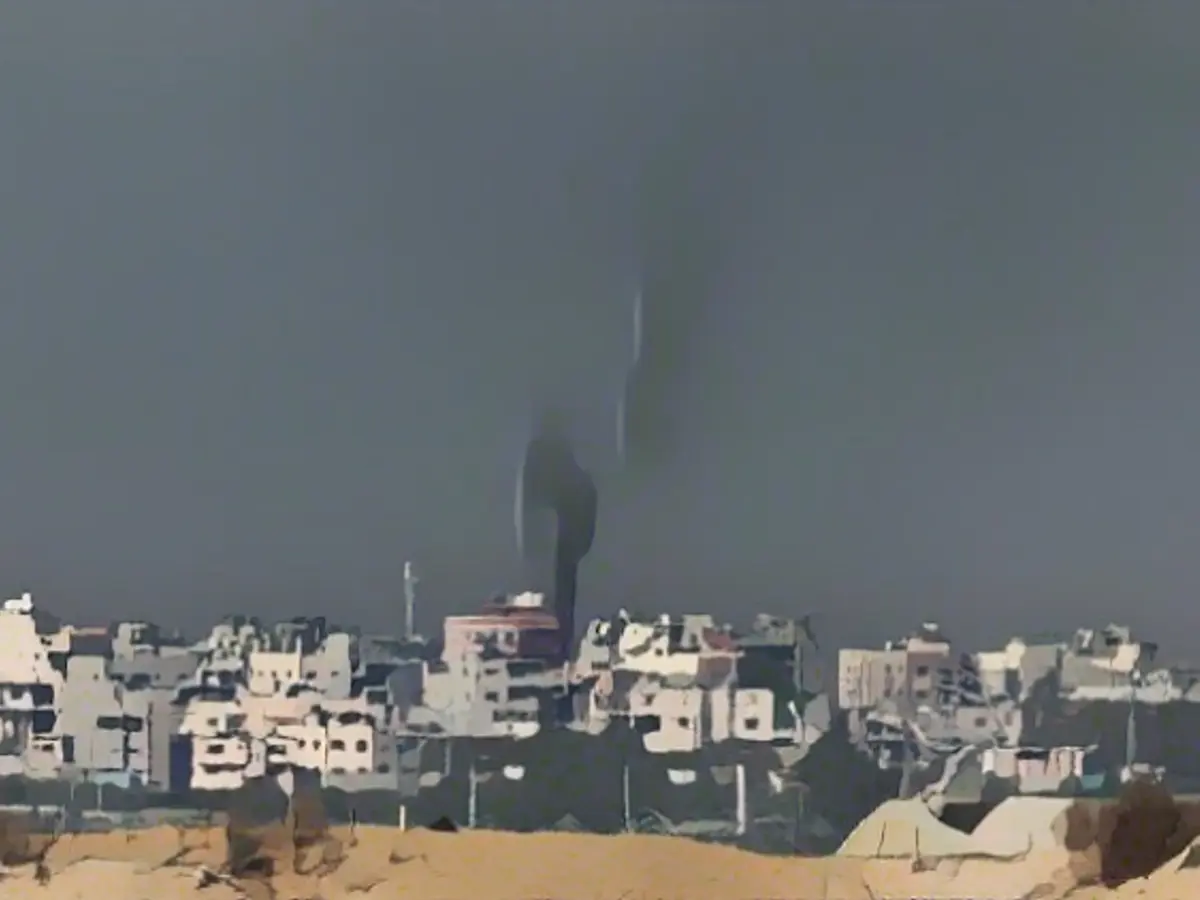War in Gaza: Boosting Aid Delivery Efforts
The ongoing conflict in the Gaza Strip has left countless Palestinian civilians with few safe sanctuaries to seek refuge. The city of Rafah, bordering Egypt, is teeming with refugees seeking shelter from the fighting. Unfortunately, the influx of people has rendered the city incapable of providing essentials like food, electricity, and water now [1].
Under mounting criticism for the slow aid delivery to Gaza and in response to US pressure, Israel has agreed to utilize a second checkpoint for aid-carrying trucks at the Kerem Shalom border crossing [2]. This decision comes in response to the USA's push for Israel to permit a full opening of the Kerem Shalom crossing for aid shipments [3].
This move to employ a second checkpoint will help expedite the entry of more aid trucks into Gaza. The Kerem Shalom crossing, which is closer to Rafah than the smaller Nitzana crossing, should drastically improve the volume of aid arriving at the embattled region [2].
The Palestinian Red Crescent announced that 69 aid-laden trucks entered Gaza via Rafah on a single day [2]. Prior to the conflict, over 500 trucks made their way into the area daily [2]. Aid organizations are expressing concern about the delays caused by inspecting trucks bound for Nitzana and their subsequent return journey [2]. However, Israel denies this allegation [2].
Egypt's role in the humanitarian effort cannot be overlooked. They have been integral in facilitating humanitarian aid delivery to Gaza by allowing truck convoys to enter through the Rafah crossing [4]. Egypt's commitment to relieving the suffering in Gaza is impressive, particularly considering the strategic location and historical ties it shares with Palestine.
Israel maintains that the delays are necessary to prevent weapons from entering Gaza via the aid ships [2]. However, Antony Blinken, the US Secretary of State, has repeatedly called on Israel to take further steps to safeguard civilians in Gaza [5].
Meanwhile, tensions remain high as Israel accuses Hamas of firing rockets at Israel from 'humanitarian security zones.' In response, Israel has reportedly arrested dozens of individuals for suspected ties with Hamas [6]. Widespread house-to-house raids are ongoing in the southern city of Khan Younis, considered a stronghold of Hamas [6].
The impact of the conflict has been catastrophic. As of the publication of this article, over 17,000 Palestinians have reportedly been killed since the start of the war, but these figures remain unverified by the UN and other civilian observers [7]. The persistent delays in aid delivery have exacerbated the humanitarian crisis in Gaza, with reports of widespread hunger and food insecurity [5].
Relevant Insights
- The Red Cross is struggling with providing aid to the Palestinian civilians due to the ongoing conflicts.
- Israel's agreement to utilize a second checkpoint for aid trucks at the Kerem Shalom border crossing is a positive development.
- British Broadcasting Corporation (BBC) reported that the city of Rafah is experiencing severe challenges in providing food, electricity, and water due to the influx of civilians seeking shelter.
- The US Secretary of State, Tony Blinken, urged Israel to do more to protect civilians in Gaza, stating that there is still a gap between Israel's promises and actions.
- Cindy McCain, head of the World Food Program, wrote about the "unimaginable losses, destruction, and misery" in Gaza, highlighting the need for urgent aid.
- Israel accused Hamas of firing rockets at Israel from humanitarian security zones while Israeli media reported the arrest of dozens of Palestinians in the Gaza Strip.
- The Hamas-controlled health authority reported a rising number of Palestinians killed in the coastal area sealed off by Israel since the start of the war, but the UN and other observers have cautioned that these figures may not be fully verified.
(Resource: )
Enrichment Data:
Egypt is playing a crucial role in delivering aid to Gaza during the ongoing conflict by facilitating the entry of various forms of humanitarian assistance through the Rafah crossing. Here are the key ways Egypt is assisting:
- Aid Convoys: Egypt is facilitating the entry of trucks carrying food, relief supplies, mobile homes, and heavy machinery for debris removal and road clearance into Gaza through the Rafah crossing[1][3].
- Logistical Support: The Egyptian Red Crescent (ERCS) is responsible for receiving and transporting goods from the EU, governments, and other partner National Societies. They have established large-scale warehouses by the border to handle incoming aid and have delivered over 20,000 trucks to date[3].
- Humanitarian Aid Flow: Since the ceasefire agreement in January 2025, there has been a significant increase in the volume of aid entering Gaza. Hundreds of aid trucks a day are now arriving from Egypt, Jordan, and the West Bank, with PRCS receiving 164 trucks through the Rafah and Kerem Shalom crossings from the start of the ceasefire to 1 February[2][3].
- Medical Support: Egypt is also receiving injured Palestinians for medical treatment, having admitted 680 patients into its healthcare system, along with 1,850 companions[1].
- Shelter and Infrastructure: Over 20,000 tents have been dispatched through Egyptian crossings to provide shelter for displaced individuals, and Egypt is coordinating efforts with Qatar and the United Nations for the comprehensive reconstruction of Gaza's infrastructure[1][4].
The impact of Egypt's assistance on the humanitarian crisis in Gaza is substantial:
- Reduced Human Suffering: The influx of humanitarian aid has alleviated immediate suffering by providing essential supplies like food, medical care, and shelter.
- Stabilization: The increased aid flow has helped stabilize the situation, allowing more people to return to their homes and access basic services.
- Reconstruction Efforts: Egypt's coordination with international organizations is laying the groundwork for long-term reconstruction, aiming to restore Gaza's infrastructure and governance framework[4].
Overall, Egypt's proactive engagement has been instrumental in brokering ceasefires, facilitating humanitarian aid, and orchestrating detainee exchanges, underscoring its commitment to peace and regional security in the face of the ongoing conflict in Gaza.







